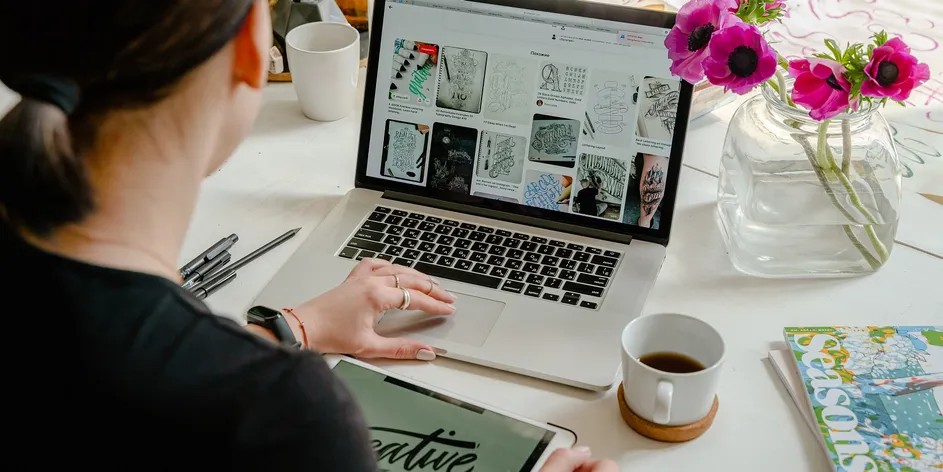AI Art Generators: Fun or Complications?
At first glance, AI art generators appear to be a delightful source of entertainment. Who wouldn’t enjoy transforming their selfies into imaginative portrayals as royalty, Vikings, or Victorian aristocrats?
However, delving deeper reveals that it’s not all just fun and games. It raises questions about the creators and ownership rights associated with the AI-generated artwork. Let’s explore the darker side of AI art.
The trend of AI-generated art gained popularity online and stirred up discussions. The concept seemed straightforward: provide an AI generator with your images, and it would create artistic interpretations of your appearance.
Social media platforms became flooded with individuals participating in this trend. TikTok, Instagram, and Twitter were filled with AI-generated art. Even dedicated YouTube videos emerged, showcasing people trying out these services. But amidst the excitement, have you considered the matter of copyright?
Do the creators of the AI generator have the right to use the images generated by their own creation? What about the photos you provided to the generator? Do you forfeit your rights to those images when you agree to use the service?
1.The Importance of Reading the Fine Print
It’s a well-known joke that people often skip reading terms and conditions and simply agree to them without much thought. However, when it comes to AI art generators, it is crucial to take the time to read and understand them.
One of the widely used AI art generators is Prisma Labs. It offers premium features at a cost of $7.99 per month or $29.99 per year, and its terms and conditions can be quite alarming.
In essence, Prisma states that users “retain all rights in and to your user content,” which is reassuring. However, it goes on to claim a “perpetual, revocable, nonexclusive, royalty-free, worldwide, fully paid, transferable, sub-licensable license to use, reproduce, modify, adapt, translate, create derivative works” with respect to your images.
It is essential not to overlook the terms and conditions when dealing with AI art generators. Understand what you are potentially giving up in exchange for an amusing image: your biometric data.
2.Copyright
Copyright poses a significant challenge when it comes to AI-generated art. To clarify, in the United States, works created solely by a machine do not receive copyright protection; copyrightable works require human authorship.
However, this doesn’t stop people from attempting to copyright AI-generated art. It also raises the question of who should rightfully hold the copyright.
Should the creator of the AI generator be the copyright holder for its creations? Is it the individual who provided their images and selected the “right” compositions? Or is it the person whose images were used to train the AI algorithm behind the art generator, as their work influenced the AI’s ability to create art?
Multiple parties are involved.
Copyright in the context of AI-generated art is a highly debated topic that will likely continue to be discussed for years to come.
3.The Ethical Aspect of AI Art: Is It Theft?
Using AI to create images may seem simple, but AI generators don’t create art out of thin air. They rely on pre-existing art or text commands that are fed into the generator, which then learns how to create art based on those inputs. Essentially, these generators utilize other people’s art to learn how to create their own.
It would be different if the creators of AI art generators sought out willing participants who consented to their artwork being used to improve machine learning. However, that is often not the case. AI generators pull art from various sources on the internet where it is freely available to view. But viewing art freely does not equate to freely using it.
4.Bias and Harmful Stereotypes
As AI generators learn from a larger pool of art, they improve their capabilities. However, the content they learn from is created by fallible humans.
While AI generators are typically programmed to filter out negative representations and harmful ethnic or gender stereotypes, it is nearly impossible to catch everything. Consequently, there is a risk of AI-generated art perpetuating offensive and harmful depictions.
Don’t Ignore the Issues for the Sake of Enjoyable Images Undoubtedly, it’s enjoyable to see yourself portrayed in the style of Van Gogh or as a superhero from Batman comics. The entertainment value of AI-generated art is undeniable.
However, we must not overlook the negative impact on artists whose works have unknowingly been “sampled” by AI generators. AI art has a dark side, and it would be remiss to ignore its existence.


